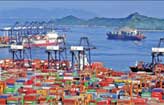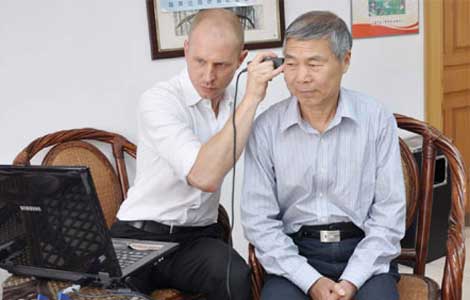Game for growth
Updated: 2011-08-26 12:14
By Alexis Hooi (China Daily European Weekly)
That is where the Institute of European Studies of Macau, which Marques is president of, comes in.
Based in Macao, the institute was set up in 1995 to promote the internationalization of the region by liaising with Europe. The institute is a private organization supported with funds from the government, and its partners are public organizations that include the University of Macau, the Macao Foundation and the Monetary Authority of Macao.
To act as a bridge between the European Union and the Asia-Pacific region, the institute focuses on promoting cultural and academic dialogue through degree and training programs as well as research that bring together scholars and faculty from Europe and Asia.
The institute is also an administrative partner of the European Union Business Information Program, an initiative of the European Commission with the participation of Macao and Hong Kong partners dedicated to raising the profile of the EU among businesses in the two special administrative regions.
"We try to bring to Macao the different types of experiences of what is happening in Europe, and try to merge that experience with what is our own cultural and educational background and expanding that also to the Chinese mainland," Marques says.
"We have very interesting experiences with students that come from, for instance, the Chinese mainland. We've had students from the Xinjiang Uygur autonomous region and from Xi'an of Shaanxi province. The program was done in a way with general courses and with Macao as a case study. Final, group work projects would require coming up with something that uses Macao as an example to apply to their own locations.
"We try to provide good conditions for students from the mainland to come over and learn and to build relationships, and we would like to continue, to deepen this role, with more research and programs at a higher level."
Those efforts are becoming increasingly crucial because the ties between Europe and China can only grow in importance, Marques says.
"China and Europe are major trade partners. Hong Kong and Macao have important roles to play, and Macao can be the cultural and academic part of these relations.
"Traditionally, we are also different from Hong Kong in many respects. Our legal system, for example, is more continental."
Marques says the challenge now for Macao is to develop in a sustainable way that builds on its unique cultural heritage that brings together the East and West, much in the same way that Macanese cuisine is unique in blending southern Chinese and Portuguese food.
"We think about sustainability not only in terms of the environment, in terms of the way of life for the people here, but also in terms of cultural sustainability," Marques says.
"We are rich in our heritage. The Historic Center of Macao (a collection of more than 20 historic and cultural sites in Macao), is a UNESCO World Heritage Site. And we want to enhance and make the most out of that, not only by presenting nice monuments or buildings that already exist, but by developing the kind of lifestyle, by developing the cultural and creative elements that are linked to this kind of special environment that we have.
"The relations between Macao and Europe are already very good and productive. Both sides must try to deepen this relationship."
E-paper

Blue economy gets a lift
Coastal areas of Shandong, Zhejiang and Guangdong to spearhead sector development.
The light touch
Long way to go
Outdoor success
Specials

Star journalist remembered
Friends, colleagues attended a memorial service to pay tribute to veteran reporter Li Xing in US.

Hot pots
Tea-making treasures catch the fancy of connoisseurs as record prices brew up interest

Hear we go
Polish Audiologist helps thousands of Chinese hear for the first time.
